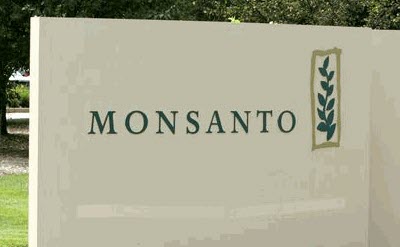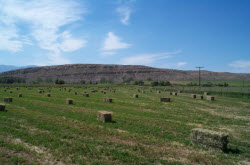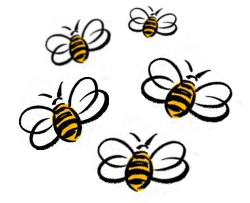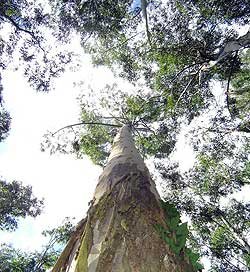After a lengthy legal battle the U.S. Department of Agriculture decided to completely deregulate Monsanto’s genetically engineered sugar beets.
|
|
|||
|
Monsanto’s genetically modified soybeans to be used for cooking oil containing lower levels of saturated fats and higher levels monounsaturated fats were approved last year by U.S. regulators. Yet, while Monsanto prepares for product launch, important safety questions remain unanswered. Recently, Sec. of Agriculture Tom Vilsack compared biotechnology and sustainable agriculture to two sons, for whom he declared equal love. Read on to learn why biotech has in fact been the agency’s favorite “son.” USDA often sides with and promotes industry interests. Its new pilot program allowing biotech developers to prepare their own safety studies or pay for those selected by the agency will only reinforce the image of an agency regulating for the industry. Conventional and organic farmers and environmental groups filed a lawsuit challenging the USDA’s decision to permit the unrestricted commercial release of genetically engineered alfalfa. In less than a month, USDA has approved for unrestricted growth GE alfalfa and partially deregulated GE sugar beets. Now, it deregulates GE corn for biofuel production with no environmental impact study of novel proteins it contains. A Federal Court ordered the removal of genetically modified beet seedlings. After USDA and Monsanto appealed, the Ninth Circuit Court of Appeals is delaying the removal until a hearing that was rescheduled for February. While still under investigation for anti-competitive patent practices and under a threat of an anti-trust case against them, Monsanto is busy tackling other issues. Federal Court finds that Plaintiffs are likely to succeed on their claims that the Animal and Plant Health Inspection Services illegally permitted the planting of genetically engineered sugar beet. AHPIS announced its response to a recent federal court decision which banned the planting of Monsanto’s GM sugar beets until the agency conducts an EIS. Many, however, see the agency’s response as an attempt to circumvent the court’s ruling. In depth analysis of Judge White’s decision which rescinded USDA’s and APHIS’ decision to deregulate Roundup Ready sugar beets without conducting an Environmental Impact Statement. The United States Supreme Court handed down its first ever decision concerning genetically modified crops and it is a mixed result for farmers, consumers and environmental groups. A 13-state survey of honey bee pests and diseases that will help USDA scientists to determine the factors that may be contributing to the decline of honey bee colonies nationwide. We review and provide legal analysis of the oral argument in the Monsanto v Geertson matter heard recently by the Supreme Court. Ignoring criticis and finding their concerns to be “unlikely,” on May 12, 2010 APHIS approved for continued field tests the planting of experimental genetically modified eucalyptus trees across seven states. On March 16, 2010, a California District Judge denied plaintiffs’ request to halt the planting of GE sugar beets. The Court’s decision, however, left open the possibility of a ban, which is to be determined at the permanent injunction hearings in July. Organic farmers and environmental groups will seek this week an injunction to stop the planting of the GM beets until the U.S. Department of Agriculture’s Animal and Plant Health Inspection Service (“APHIS”) conducts an environmental impact statement (“EIS”). The lawsuit also seeks to bar the sale of sugar made from GM modified beets. The United States Department of Agriculture (“USDA”) and its Animal and Plant Health Inspection Service (“APHIS), which oversees biotechnology regulation, was heavily criticized by its own Inspector General 2005 audit report. Did APHIS change its way since then? As a result of policies enumerated by the Coordinated Framework, regulatory control over GMOs in the United States was divided among different regulatory agencies. The consequences of such a decision was a myopic, and at times, haphazard regulatory control by each agency over GMOs. For USDA, this raises significant questions as to the agency’s ability to effectively regulate second generation GMOs. Judge Jeffrey White of the Northern District of California ruled on September 21, 2009, that the U.S. Department of Agriculture’s deregulation of genetically engineered RoundUp Ready sugar beets in 2004 was unlawful. The USDA provides a number of exemptions for articles that it has determined do not pose a plant pest risk. One of such exemptions authorizes the introduction of certain regulated articles without a permit provided that USDA is notified in advance. The United States Department of Agriculture (“USDA” or “Agency”) requires that anyone desiring to import, transport interstate, or plant a regulated article must apply for a permit or make a notification to the Agency’s Animal and Plant Health Inspection Service (“APHIS”) that an introduction will be made. Under the Plant Protection Act (“PPA”) USDA requires that anyone desiring to import, transport interstate, or plant a “regulated article” must apply for a permit or make a notification to APHIS that an introduction will be made. The United States Department of Agriculture shares significant regulatory authority over GM crops with FDA and EPA. Transgenic, or genetically modified, plants are regulated by USDA’s Animal and Plant Health Inspection Service (“APHIS”) under the Plant Protection Act (“PPA”). |
|||
|
 |
|||
















